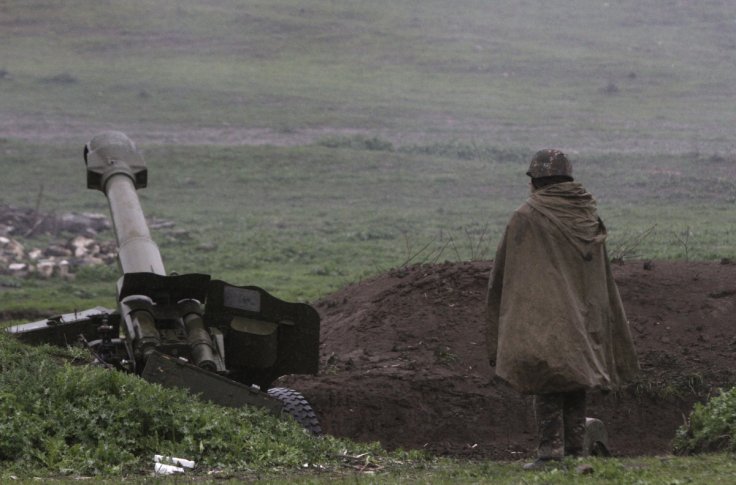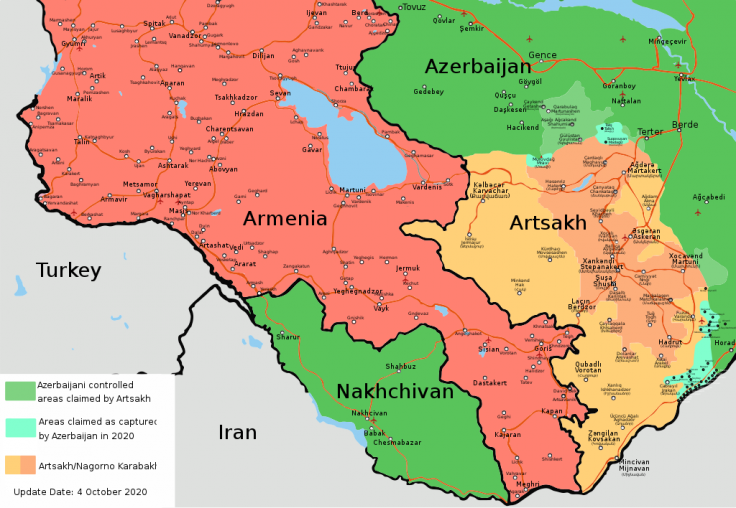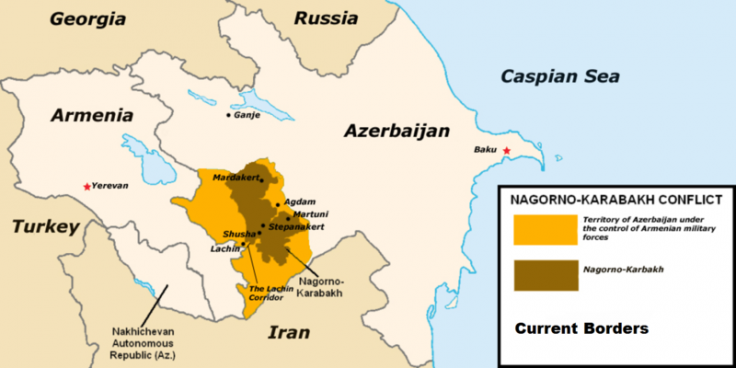The Armenia-Azerbaijan standoff has resulted in the blocking of a key lifeline for the Armenian people in Nagorno-Karabakh, triggering a humanitarian crisis. Armenians trapped inside Nagorno-Karabakh say Baku has set up the crisis by allowing 'government agitators' to block the Lachin corridor. Azerbaijan has denied the charges, saying that the protests are over mineral mining in the region. More than 15,000 tonnes of food and medicine have been blocked from reaching the enclave, France 24 says.
What is Lachin Corridor?
The Lachin corridor is a 32-kilometre road that connects Armenia with the disputed Nagorno-Karabakh region, which is an enclave inside the Azerbaijani territory. The road is the lifeline for the Armenian community in Nagorno-Karabakh, who declared the territory an independent republic following the disintegration of the Soviet Union in 1991. The Armenian residents in the territory call the Nagorno Karabakh region the Republic of Artsakh. Russian peacekeepers have been controlling the corridor after the last war between Yervan and Baku.
Azerbaijani protesters blocked the Lachin Corridor on December 12, cutting off essential supplies to 120,000 Armenians trapped in Nagarno Karabakh. For these people, the corridor is the only route for getting essential supplies like food, fuel and medicines.

Wider Fallout
Nagorno Karabakh residents say that Azerbaijan as wider motives behind the blockade of the Corridor, which as been under the control of the Russian peacekeepers following the last war between Armenia and Azerbaijan. They cite Azerbaijani media talking up the demand for complete control of Baku over the corridor and the removal of the Russian peacekeepers.
Russia's Stance
Armenians and the Nagorno Karabah residents have been let down by the alleged Russian apathy towards the latest crisis. According to them Russia is too engrossed with the war in Ukraine and has practically given up on its role to protect the residents of the enclave and stand by ally Armenia.
"We've got used to electricity, gas and water cuts over the past two years ... But this blockade, and the fear of being close to starvation, has disrupted life like never before ..The internet connection is getting slower and slower and the electricity is partly cut off. We feel completely isolated, like we're stuck in a desert that everyone's forgotten about ...People are thinking about the dark days of the past, and having nightmares about the future," a Nagorno Karabakh resident told France 24.

According to a human rights activist in the region, it is not surprising that Azerbaijan chose the winter months to cut off essential supplies and gas pipelines. "It was obvious that Azerbaijan was going to use this tactic (gas supply) to intimidate people, particularly in winter ...And there's no reason why they wouldn't continue to use this tactic, given the critical state of our infrastructure," said Gegham Stepanyan, the human rights ombudsman of Nagorno-Karabakh, according to France 24.
Various international organizations have called for the lifting of the blockade, but the Armenians feel that the European Union is shying away from exerting the right pressure on Azerbaijan to diffuse the situation.
The Amnesty International, Human Rights Watch and UN High Commissioner for Human Rights issued statements citing the seriousness of the humanitarian crisis and calling for the lifting of the blockade. HRW said the prolonged blocking of the road could lead to "dire humanitarian consequences". "The longer the disruption to essential goods and services, the greater the risk to civilians," it said. According to the Lemkin Institute for Genocide Prevention, the crisis could escalate into ethnic cleansing in Nagorno-Karabakh.
Gegham Stepanyan, the human rights ombudsman of Nagorno-Karabakh, accused the European Union of an 'ambivalent' response to the crisis, saying that the bloc is putting its energy security concerns ahead of the grave humanitarian crisis that's unfolding.

"Azerbaijan signed a big gas contract recently [with the European Union] .. .The players that continue their commercial activity with Azerbaijan – Europe for example – are accepting an autocratic regime who is trying to destroy the democratic case of Artsakh," he said.
Azerbainan president Ilham Aliyev attended and EU leaders signed an agreement in Bucharest on 17 December 2022. The document titled "Agreement on strategic partnership on green energy" says electricity from Azerbaijan will be exported through underwater electric cable under the Black Sea from Georgia to southeastern Europe. Among other leaders, Ursula von der Leyen,President of the European Commission, also took part in the meeting.









